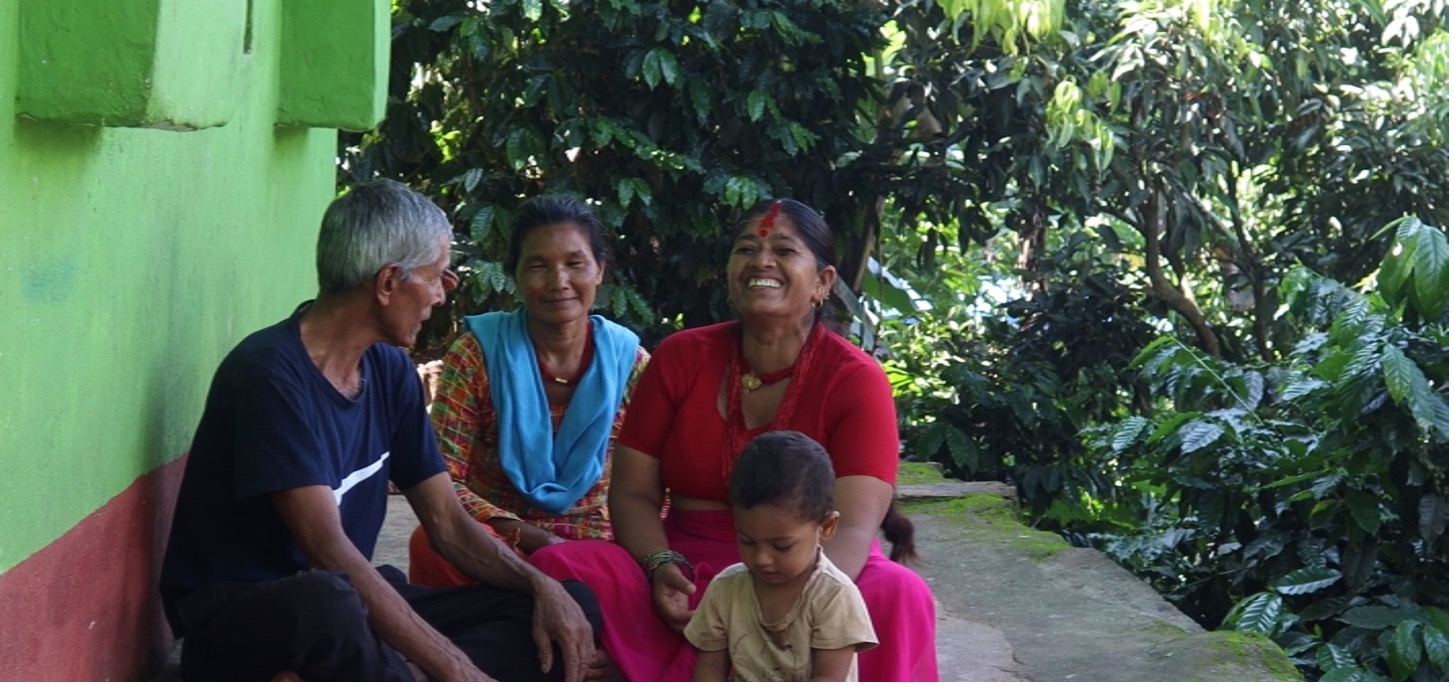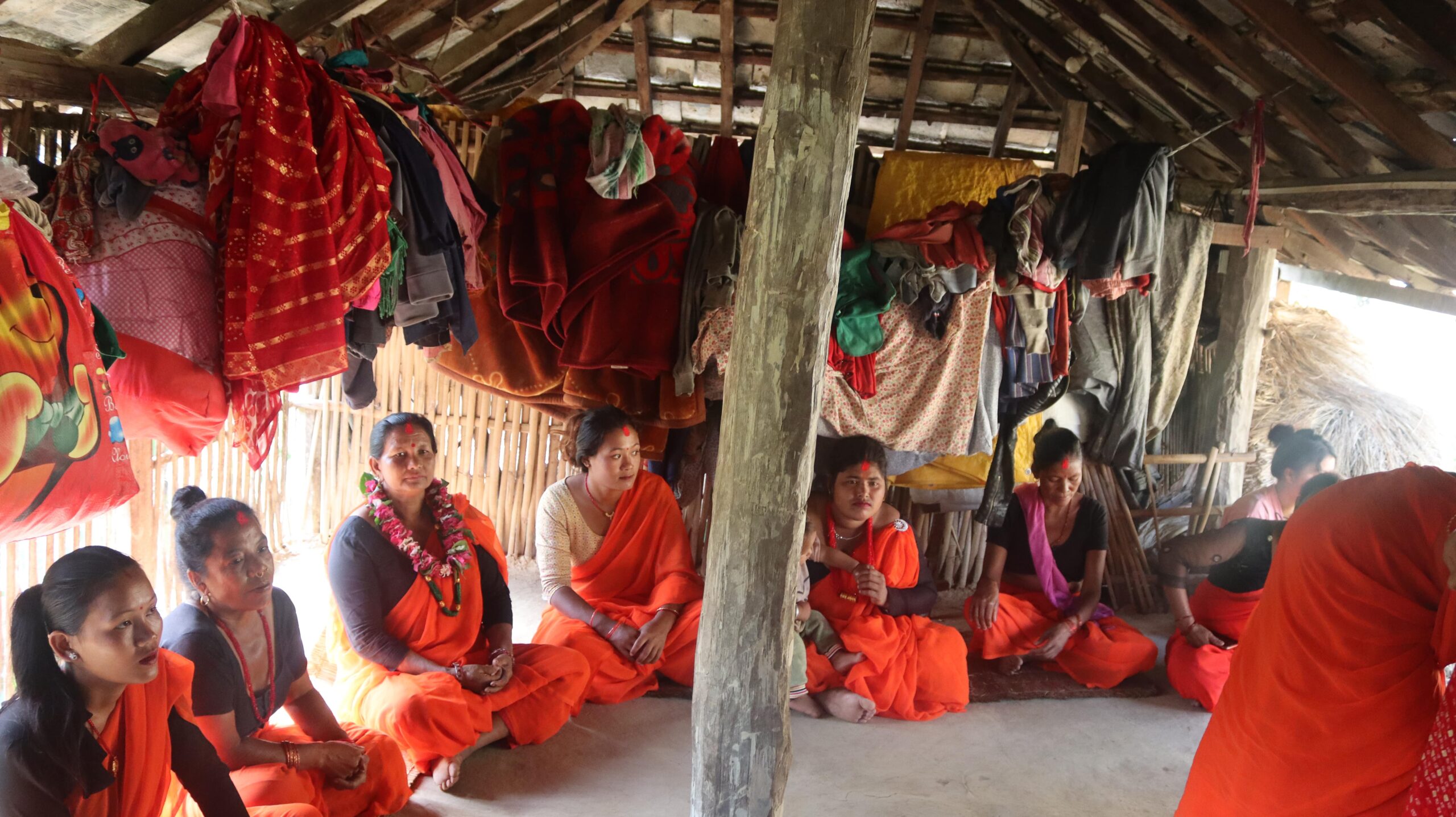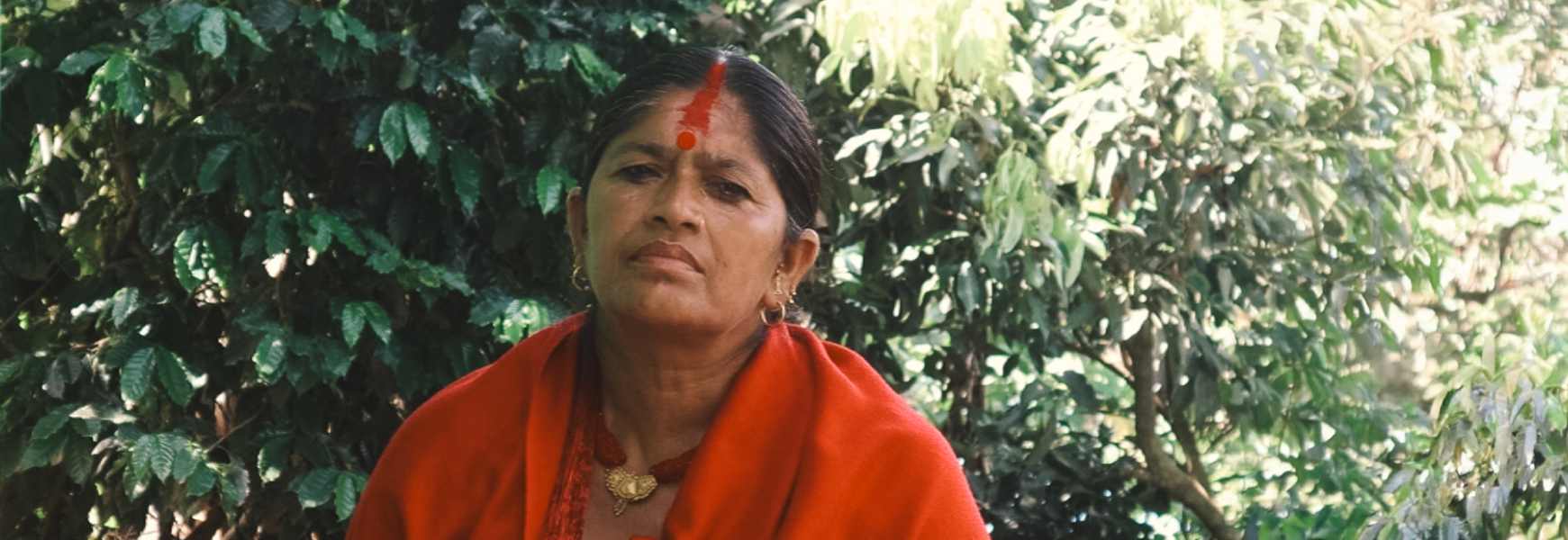How Joining a Women’s Savings Group Helped This Farmer Survive Cancer
Farmers in Nepal, especially women, face a host of intersecting challenges. Many work with limited resources under difficult conditions, while also managing livestock, household responsibilities, and their children’s education from a young age. This burden takes a toll on their health and ability to sustain a livelihood.
Women farmers are also particularly exposed to toxic pesticides—a result of structural inequality and poor regulation. As Nepali Times reports, “women and Dalit households tend to have higher exposure to toxic pesticides.” Long-term exposure has been linked to severe health conditions, including cancer, one of the leading causes of death in rural Nepal.
Yet, grassroots solutions are making a difference. Sabitra Giri, a woman farmer from Kavre, shares how joining a women’s credit and savings group helped her confront a cancer diagnosis and rebuild her life. Her experience highlights the vital role of community-led initiatives in helping farmers protect both their health and their future, especially when government support is scarce.

Sabitra Giri’s Testimonial
(As provided by our local partner BBP Pariwar, with minor changes for clarity)
I was born in 1969 in a small village called Mahadevsthan in Kavre, Nepal. Life for me, as the eldest of four children, was filled with responsibilities. My parents, Sovit Bharati and Kali Bharati, had simple hopes and dreams. In those days, education for girls was not common in our community, so while other children might have gone to school, I stayed at home. I took care of my younger siblings and helped with all the household chores, learning the ways of the house from a young age. I could not even write my own name.
Life changed even more when I turned 13. My family arranged for me to marry Mr. Ram Bahadur Giri, a 26-year-old man, from a nearby town. Being a wife at that young age was a challenge on its own. My husband was often away from the village, serving in the army, which left me fully responsible for managing our home.
When I was 15, I gave birth to our first child. But my joy quickly turned to heartbreak, as my little boy didn’t survive past ten days. In those moments, I wished desperately that we had access to a nearby clinic. I believe he could have been saved if we had better medical facilities in our village. By the time I was 20, I had two children, but I still lacked the guidance and resources young mothers need.
As time went on, I noticed that many women in our village had joined savings and credit groups. They talked about how it improved their lives and helped them understand so many things I didn’t know about. I felt a pull to be part of that, to learn and grow like they had. So I approached the Bachhaladevi Women’s Savings and Credit Group, and eventually, I joined them. That decision marked the beginning of something new for me.
One day, our group learned about a reproductive health camp organized by BBP Pariwar in Kuntabesi. There, they were offering screenings free of charge for cervical cancer. The social mobilizer encouraged us to go, but I did not see the point. I felt healthy and thought, “Why would I need this checkup?” But the mobilizer and my friends convinced me to go.
Reluctantly, I agreed, thinking it was just another health talk. To my surprise, the checkup changed my life. The doctors found something unusual and suspected it might be cancer. I was terrified. They referred me to Bhaktapur Cancer Hospital, and after seven long days of waiting, I got the final report: it was second-stage cancer. When I heard the word “cancer,” my world shattered. My family and I were devastated. In our village, we all believed that cancer was a death sentence.
The doctors, however, reassured me. They told me it was not too late, that treatment could help. I began chemotherapy, five sessions in total. The side effects were hard. I watched my hair fall out, I felt weaker than ever, but I kept going. My husband was skeptical at first; he thought this was unnecessary. But as I completed each session, we both realized that the treatment was saving my life.
After the fourth chemotherapy, the doctors confirmed that I was fully recovered. The cancer was gone. I came home with a newfound strength and gratitude I never thought was possible. Now, I can be with my family, return to my responsibilities, and continue my work in the women’s group with even more energy and hope.
Looking back, I owe so much to BBP Pariwar and the mobilizer who encouraged me to get that checkup. Without them, I might not be here today. I later received support from BBP Pariwar to purchase a milking buffalo, and now, I sell milk to help cover household expenses. I have even repaid the loan I took to buy the buffalo.
I often think about how different my life could have been if I had not gone to that health camp. It taught me that life really is a struggle, but sometimes, the struggles we face lead to new beginnings. Today, I am grateful for this new life, and I am more determined than ever to help other women understand the importance of health and awareness.
“I am more determined than ever to help other women understand the importance of health and awareness.“
Sabitra Giri

Sabitra’s experience reflects the deeper work of Boudha Bahanupati Project – Pariwar (BBP Pariwar), a local organization committed to improving the well-being of vulnerable communities in Nepal, notably women from the socially excluded Dalit class.
In remote farming regions, healthcare is scarce, and many illnesses go undetected until it’s too late. Farmers make up 37% of cancer patients in Nepal, often due to long-term exposure to chemical pesticides and fertilizers. Cervical cancer is the leading cause of cancer-related death for women in the country, and yet it is preventable with early detection.
BBP Pariwar works to change this by supporting women and farmers through:
- Agroecology training that replaces chemical pesticides with natural biofertilizers, improving both soil and human health.
- Health access and education, including connecting farmers with free government cancer screenings and delivering workshops on nutrition, regenerative farming, and the dangers of agrochemical misuse.
- Women-led savings and credit groups, helping families prepare for health emergencies and invest collectively in their futures.
In places where government support is limited, organizations like BBP Pariwar are a lifeline, helping farmers care for their land, their health, and their future – especially when the trend for pesticide use is actually growing by 10%–20% every year in Nepal.
The hands that feed us deserve more than exposure to harm. Stories like Sabitra’s remind us that the health of farmers is the foundation of our own. Because if not for farmers, what would we eat?
Invest in community-led solutions that care for farmers and our collective future
Make a gift today to help fund initiatives that empower farmers to drive the shift from extractive, unjust food systems to ones where people and nature can thrive.

